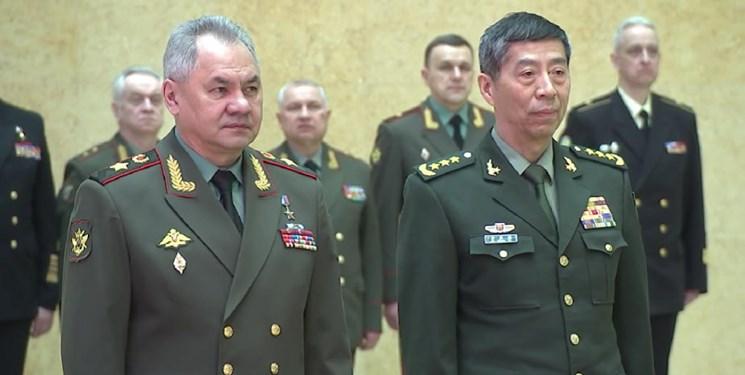In an interview with the Strategic Council on Foreign Relations website, Afifeh Abedi, referring to the US concern about the increase in military cooperation between China and Russia, clarified: Military cooperation between China and Russia is not a new issue. The two countries have previously cooperated in various fields and emphasized cooperation in their declared policy. But what the US emphasizes in the current situation is the military cooperation between China and Russia simultaneously with the war in Ukraine.
She added: China rejects the accusation that its military cooperation with Russia is part of the war in Ukraine. But in this regard, these players’ interests should also be considered. All international players may even pursue conflicting interests in interaction and cooperation with their allies and friends. Evaluation of various aspects shows that China is not interested in the defeat of Russia in the Ukraine war. Indeed, Russia’s defeat in the Ukraine war will mean strengthening the political and geopolitical position of the United States up to Eastern Europe, which brings no positive consequences for China and can mean concentration and escalation of the crisis in East Asia and the issue of Taiwan.
The analyst of Russia affairs, saying that from this point of view, the military cooperation between China and Russia can be considered as a part of the Ukraine war, added: But from another point of view, the United States and Europe also rejected China’s peace proposal and did not allow even the initial stages of the peace talks to begin. However, this process can be viewed from another perspective; the US is resisting the transformation of the world’s US-centered political security and geopolitical order. For various political and ideological-economic-military reasons, this country considers China and Russia not only its rivals but also its enemies.
Abedi reminded: From the beginning of the war in Ukraine, the US was trying to categorize all its potential and actual rivals in the issue of the war in Ukraine. The literature of the West, led by the US, was that any government that does not condemn Russia’s attack on Ukraine is an enemy of the US and the West. Of course, in terms of interest analysis, it can be said that the classification of enemies in Ukraine’s decisive war is in the US’s interest. Especially when this classification is done geographically and geopolitically, it helps to unify the West and adopt a common and more coherent strategy to deal with the rivals.
She continued: During the Cold War, the US, by adopting a strategy of being close to China, although it caused the collapse of the Soviet Union, led to the emergence of another giant. During that period, Russia also remained a military and nuclear power; in fact, the US seems to have abandoned the traditional containment strategy.
Emphasizing that China’s traditional policy is to refrain from engaging in a political blockade in favor of a particular player, the researcher on Russia affairs referred to Beijing’s efforts to stay away from the costs of exposure to international tensions and added: There are doubts whether China can withstand regional and international structural pressures and continue its policy. Theoretically, based on the theory of offensive realism, systemic pressures can force players to reconsider avoiding military and geopolitical competition.
Abedi evaluated the initiatives presented by China in the Middle East or the war in Ukraine in line with China’s attempt to escape from such structural pressures and said: That type of initiative will probably continue in China. China has the economic power and, as a result, the political power necessary to advance various initiatives.
She pointed out: There is a possibility of a new initiative from China regarding the war in Ukraine and support for Russia, but this initiative is uncertain due to the severe refusal of the United States to make peace. The US tends to direct the existing process with better management of potential and actual threats, that is, China and Russia, and minimizing the cost of dealing with them.
An expert on Russian affairs regarding Russia’s approach to the expansion of military cooperation with China and expression of Beijing’s desire to strengthen further the strategic relations between the armies of the two countries said: Of course, as a player in war and spending money, Russia is more inclined to receive political and military support from a significant power like China, but this blockade is costly even for Russia. Considering the difference in the power balance between China and Russia, this blockade and alliance may force the Russians to abandon some political and security considerations against China and stay in the shadows, and in the long run, the result will not be what Russia is looking for.
Abedi explained: China and Russia’s blockade and alliance also face uncertainties. In addition, it should be kept in mind that this round of power rivalry is different from the traditional rivalry during the Cold War, when the number of major military and political powers was limited to two or three powers, and there was a clear ideological demarcation. In this situation, the emerging powers’ role in balancing the rivalry or escalating tension in the international environment should not be ignored. The emerging powers take actions that change and modify certain conditions and relationships. Such role-playing is such that the big powers have to consider them.










0 Comments